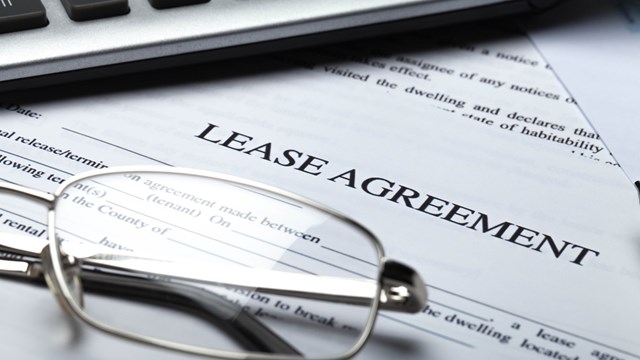Having a commercial space on the ground floor of your co-op building can be both a blessing and a curse.
On the blessing side, the income generated by such a space can provide much-needed income for a residential cooperative, reducing shareholders’ maintenance costs and helping to fund necessary maintenance and repair projects. On the other hand, if not properly written, the terms of a commercial lease can come back to haunt a co-op, creating unnecessary conflict and hassle.
Hal Coopersmith, a real estate attorney in New York and an expert on commercial leases as they apply to co-op buildings gives us some examples to watch out for:
Cooperator News (CN): What’s the most common pitfall for co-op communities leasing out a commercial space?
Coopersmith: “Without question, it’s accounting for and tracking collections for additional rent. Unlike standard residential leases, commercial leases often include passthrough items for additional rent; items such as an applicable portion of real estate taxes, utility payments, even a portion of insurance premiums. The passthroughs may be different for different buildings. When a passthrough is billed often depends on what is explicitly outlined in the lease. A specific invoice for the additional rent separate from the monthly rent invoice may be required, and may be billed say, quarterly instead of monthly. Some leases may specify that if a landlord - in this case the co-op - does not send an invoice for the additional rent item, they may not be entitled to it.”
CN: How can a co-op track and ensure collections?
Coopersmith: “The most important component in tracking and collecting additional rent is for the co-op to employ a managing agent who is familiar with commercial rentals and has the necessary experience and software to make the collections.
“The manager needs to know what items of additional rent there are, and how and when to invoice them. If that’s not done properly, the tenant won’t pay, and the co-op may lose expected revenue. To avoid this problem, it’s important for the manager to know the specific additional rent items when the lease is executed. While one might think this knowledge to be de riguer, the managing agent should always ask the building’s attorney for a lease abstract.
“Additionally, with regards to lease renewals, you don’t want anyone on a month-to-month basis. It puts the co-op as landlord at a disadvantage.”
CN: Can you give us a real-life example?
Coopersmith: “We represented a co-op on Manhattan’s East Side. [Their commercial lease] was an office use with lobby access. When the lease expired, the tenant remained month-to-month. The co-op lost out because with the tenant in the space without a lease, they lost negotiating leverage. The tenant could leave on just 30 days notice. Attend to lease renewals in a timely fashion, otherwise you lose your leverage. ‘Timely fashion’ is an open-ended term, though. It depends on the space and use. For larger spaces, it could be years in advance, while for smaller ones, a matter of months. As a matter of course, co-ops usually want to keep existing tenants in place; that means less work, dust, etc. - it’s less disruptive, and there’s less possibility of down-time without a rent-paying tenant.”
CN: What other concerns co-op boards should keep in mind?
Coopersmith: “Another important consideration is that a co-op needs a way to determine what the fair market value of their space is at any given point in time. That’s done by having a valuation or appraisal of the space. The natural inclination of board members toward inertia can result in undervaluation of a commercial lease. It’s easy for a board to evaluate a residential application. But they may not have much experience with commercial leases. They may have a tenant coming up for renewal, but won’t do anything about it, or may make the error of keeping the rent wherever it is. They should, from time to time, get a valuation of the space before the lease expires - exactly how long before depends on the size of the space.”
The takeaway: boards and managers alike - if you’ve got commercial space in your building, stay on top of its administration. Take a proactive, informed approach by understanding the terms of the lease, paying attention to market conditions, and making adjustments as needed to maximize a valuable asset.










Leave a Comment